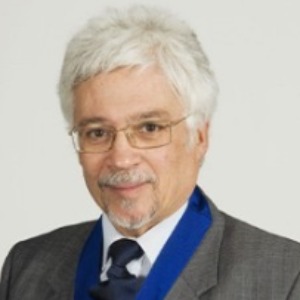Abstract:
Traumatic spinal cord injuries (TSCI) are life-changing events from medical, physical, psychological, social, financial, vocational, environmental & matrimonial effects. The combination of consequent generalised physiological impairment, multi-system malfunction, multiple disabilities, wide range of potential complications, sensory impairment together with the non-medical effects impose challenges to patients, carers and clinicians. Early prediction of ambulation is important to the patient especially during the early stages following injury. Neurological Recovery is not uncommon following traumatic spinal cord damage and is predictable. To date there is no evidence that surgical intervention on the injured spine can result in equal or superior outcomes than the traditional holistic Active Physiological Conservative Management of the injury and all the medical and non-medical effects of the neurological damage. The risks associated with surgery and post-operatively are likely to further limit the quality, human and monetary of the neurological and other outcomes and increase the cost of their treatment. Neurological recovery entirely depends on the quality not the method of management of both the spinal injury and its range of its medical effects. The positive and negative prognostic indicators of neurological recovery, its extent and the factors that enhance, prevent or cause neurological deterioration in patients with complete and incomplete cord damage will be discussed.
Biography:
WEM trained in the speciality of spinal injuries at Stoke Mandeville, Oxford, Guys Hospitals & the USA between 1971 and 1983 .To date he personally treated 10,000 patients with traumatic Spinal & Spinal ord Injuries. WEM developed, and led the Midland Centre for Spinal Injuries (MCSI) between 1983 & 2014. He took responsibility for the management of the injured spine, the multisystem malfunction as well as the range of non-medical and physical effects of cord injury in the acute, subacute, rehabilitation phases as well as in the long term. WEM lectured worldwide in developed and developing countries. He contributed to the literature with over 150 publications. He published his observations on the prognostic indicators of neurological recovery following Traumatic Spinal Cord Injuries and Introduced the concept of “Physiological Instability of the Injured Spinal Cord ” and its influence on clinical management. WEM demonstrated that with simultaneous Active Physiological Conservative Management of all the physiologically impaired and malfunctioning systems of the body together with the injured spine neurological recovery occurs in the majority of patients irrespective of the degree of Biomechanical Instability, Canal encroachment or Cord Compression. He is Peer reviewer for a number of Journals. WEM held the offices of: President of the International Spinal Cord Society, Chairman of the British Association of Spinal Cord Injury Specialists and Executive Member of the BSRM. Founder Member and trustee of SPIRIT Educational Charity in Spinal Injuries and Transhouse Charity that provides interim accommodation between hospital and home for patients. He raised about six million pounds from charity to rebuild and furnish the MCSI. Advisor to WHO‘s & Co-author of the WHO International Perspectives on Spinal Cord Injury which was published in 2013, Member of the NICE Guideline Developing Group in spinal injuries. He received a number of awards including: the Medal of the International Spinal Cord Society, National Hospital Doctor Team Award for Innovation, Paul Harris Fellowship of the Rotary Club Outstanding achievement award from the Chinese Society of Spinal Injuries, Outstanding Consultant Achievement award by the Spinal Injury Association, Hon. Presidency of the Romanian Spinal Cord Society. He was commended in the House of Lords on two occasions. WEM‘s is an advocate for the demonstration of evidence based clinical management, the right of the patient to make a fully informed choice between the various methods of treatment including that of the injured spine. He strongly advocates for the management of patients by knowledgeable, well trained, experienced Clinicians and a team of Health Care professional in Specialised Spinal Cord Injury Centres with a fit for purpose infrastructure from the early hours or days following injury to enable the team to meet all the medical and non-medical needs of patients with such rare and complex condition.


